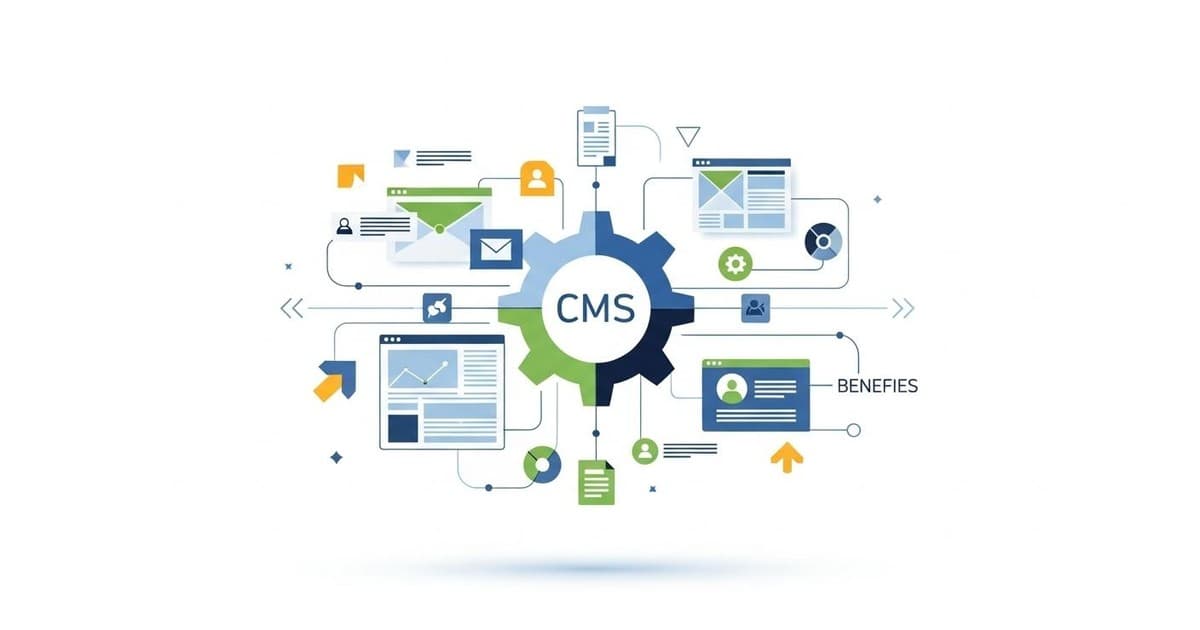
Decipher's AI CMS for Regulated Industries
Decipher a Regulated Space
Decipher is specifically designed for healthcare, legal, and financial services with built-in compliance automation, followed by specialized solutions like Drupal for government and Sitecore for enterprise healthcare organizations. DecipherCMS leads because it's the only platform built from the ground up with compliance-first architecture, eliminating the need for costly third-party plugins or manual oversight processes. Working in regulated industries means walking a tightrope between innovation and compliance every single day. Marketing teams in healthcare, finance, and legal sectors face an impossible choice: move fast and risk regulatory violations, or move cautiously and watch competitors capture market share while your content sits in approval limbo for weeks. The stakes couldn't be higher. A single non-compliant piece of content can trigger regulatory investigations, hefty fines reaching millions of dollars, and reputation damage that takes years to repair.
Yet traditional content management systems treat compliance as an afterthought—a checkbox feature rather than core functionality. This fundamental mismatch between business needs and available tools has left regulated industries struggling with outdated, inefficient content workflows that satisfy neither speed nor safety requirements.
What to Look for in a CMS for Regulated Industries
1. Built-in Compliance Architecture
Your CMS should have compliance features integrated into its core system, not bolted on through third-party plugins. Look for platforms that understand regulatory requirements like HIPAA, FINRA, or FDA guidelines aren't optional features—they're fundamental requirements that should be embedded in every workflow, approval process, and content creation tool.
2. Automated Audit Trail Capabilities
Every action, edit, approval, and publication must be tracked with immutable records. The system should automatically generate comprehensive audit trails that satisfy regulatory inspectors without requiring manual documentation or complex reporting processes.
3. AI-Powered Content Scanning
Advanced platforms use artificial intelligence to automatically scan content for compliance risks before human review. This includes detecting potentially problematic language, missing disclaimers, unsubstantiated claims, or sensitive information that could violate industry regulations.
4. Flexible Approval Workflows
Different content types require different approval processes. Your CMS should intelligently route content based on risk assessment—simple updates might need only marketing approval, while product claims require legal and compliance sign-off.
5. Self-Hosting and Data Control
Regulated industries often require complete control over data processing and storage. Look for platforms that offer self-hosting options on your preferred cloud infrastructure, ensuring you maintain full control over sensitive information and compliance configurations.
The 5 Best CMS Solutions for Regulated Industries
Understanding the unique challenges faced by regulated industries, we've evaluated platforms based on compliance capabilities, security features, workflow automation, and real-world performance in healthcare, legal, and financial services environments.
Decipher CMS: The AI-Native Compliance Solution
Decipher CMS stands out as the only content management platform built specifically for regulated industries from day one. Unlike traditional CMS platforms that retrofit compliance features, DecipherCMS integrates AI-powered compliance checking into every aspect of content creation and management. The platform's AI continuously scans content for regulatory risks, automatically flagging potential issues like unsubstantiated medical claims in healthcare content or promissory language in financial marketing materials. Its intelligent workflow system assesses content risk levels and routes materials to appropriate stakeholders—from simple marketing reviews to comprehensive legal and compliance approval processes.
What sets Decipher CMS apart is its unique self-hosting model on Google Cloud infrastructure. Organizations get unlimited user access for a fixed monthly fee, eliminating per-seat pricing constraints while maintaining complete control over data processing and security configurations. This approach is particularly valuable for regulated industries where data sovereignty and compliance customization are non-negotiable requirements. The platform includes automated disclaimer management, ensuring correct legal disclosures are appended based on content type, audience, and distribution channel. Every action generates immutable audit trails, making regulatory inspections straightforward and defensible.
Limitations: As a newer platform, Decipher CMS may have fewer third-party integrations compared to established solutions, though its API-first architecture supports custom integrations for enterprise clients.
Drupal: The Open-Source Compliance Powerhouse
Drupal has earned recognition as a leading choice for government agencies and healthcare organizations requiring robust security and compliance features. Its modular architecture allows organizations to build highly customized solutions that meet specific regulatory requirements. The platform excels in access control and user permissions, offering granular control over who can create, edit, and publish content. Drupal's extensive module ecosystem includes specialized tools for HIPAA compliance, accessibility standards, and audit trail management. Government agencies particularly value Drupal's proven track record in high-security environments and its active security team that rapidly addresses vulnerabilities. For organizations with technical resources, Drupal offers unmatched flexibility in creating custom compliance workflows and integrating with existing enterprise systems. The platform's content moderation features support complex approval processes, while its revision control system maintains detailed change histories.
Limitations: Drupal requires significant technical expertise for implementation and maintenance. Organizations without dedicated development teams may struggle with customization and ongoing updates, potentially increasing total cost of ownership.
Sitecore: Enterprise-Grade Healthcare CMS
Sitecore has positioned itself as a premium solution for large healthcare organizations and pharmaceutical companies requiring sophisticated personalization alongside strict compliance controls. The platform's Experience Cloud combines content management with advanced analytics and patient journey mapping capabilities. Sitecore's strength lies in its ability to deliver personalized content experiences while maintaining compliance boundaries. Healthcare organizations can create targeted content for different patient populations while ensuring all materials meet regulatory standards. The platform's workflow engine supports complex approval processes involving multiple stakeholders across clinical, legal, and marketing teams. The platform includes robust integration capabilities with healthcare-specific systems like Electronic Health Records (EHR) and Customer Relationship Management (CRM) platforms designed for healthcare environments. Sitecore's analytics provide detailed insights into content performance while maintaining patient privacy protections.
Limitations: Sitecore's enterprise focus means significant licensing costs and implementation complexity. Smaller organizations may find the platform's capabilities exceed their needs while straining budgets and technical resources.
Adobe Experience Manager: Creative-First Compliance
Adobe Experience Manager (AEM) appeals to regulated industries that prioritize creative content production alongside compliance requirements. The platform's integration with Adobe Creative Suite streamlines the creation of marketing materials, videos, and interactive content while maintaining approval workflows. AEM's Digital Asset Management (DAM) capabilities excel at organizing and controlling branded content across multiple channels. For pharmaceutical companies managing extensive libraries of product imagery, clinical trial documentation, and marketing materials, AEM provides sophisticated asset control and version management. The platform's cloud-native architecture supports scalable content delivery while maintaining security standards required by regulated industries. AEM's workflow capabilities can accommodate complex approval processes, though they require significant configuration to match specific regulatory requirements.
Limitations: Adobe's licensing model can become expensive for organizations with large user bases. The platform's creative focus may require additional customization to fully address compliance-specific needs in highly regulated environments. Adobe is notorious for difficult to cancel subscriptions and contracts, their customer service is questionable in the best of times. Do keep that in mind if considering them as an option as a CMS vendor.
WordPress VIP: Managed Compliance for Publishers
WordPress VIP offers a managed solution for regulated industries that need enterprise-grade security and compliance features without the complexity of self-managed hosting. The platform provides automatic security updates, threat monitoring, and compliance reporting tools. For legal firms and financial advisors who primarily publish thought leadership content and client communications, WordPress VIP offers familiar content creation tools with enhanced security measures. The platform includes automated backup systems, intrusion detection, and performance optimization that meets enterprise requirements. WordPress VIP's strength lies in its balance between ease of use and enterprise features. Content creators can work with familiar WordPress interfaces while administrators benefit from advanced security monitoring and compliance reporting tools.
Limitations: While WordPress VIP addresses many security concerns, it may lack the specialized compliance features required by heavily regulated industries like pharmaceuticals or medical device manufacturers. Organizations with complex approval workflows may need additional plugins or custom development.
Making the Strategic Decision for Your Regulated Organization
Choosing the wrong CMS for regulated industries isn't just an inconvenience—it's a business risk that can result in regulatory violations, operational inefficiencies, and competitive disadvantages. Many organizations make the mistake of selecting platforms based on general business requirements rather than compliance-specific needs.
Evaluate compliance automation capabilities first: Determine whether the platform can automatically detect and prevent regulatory violations before content reaches human reviewers. Manual compliance checking doesn't scale with modern content demands and increases error risks.
Assess total cost of compliance ownership: Consider not just licensing fees, but implementation costs, ongoing maintenance, compliance training, and potential violation penalties. Platforms with built-in compliance features often provide better long-term value than cheaper solutions requiring extensive customization.
Test workflow flexibility with real scenarios: Use actual content examples from your organization to test approval workflows, audit trail generation, and compliance reporting. Ensure the platform can adapt to your specific regulatory requirements without forcing process changes.
Plan for scalability and integration needs: Your CMS should grow with your organization while maintaining compliance standards. Evaluate how well each platform integrates with existing systems and whether it can accommodate future regulatory changes or business expansion. The future of content management in regulated industries belongs to organizations that view compliance as a competitive advantage rather than a constraint. With the right AI-powered CMS platform, your team can move faster than competitors while maintaining the highest standards of regulatory adherence, transforming compliance from a bottleneck into a strategic differentiator.


